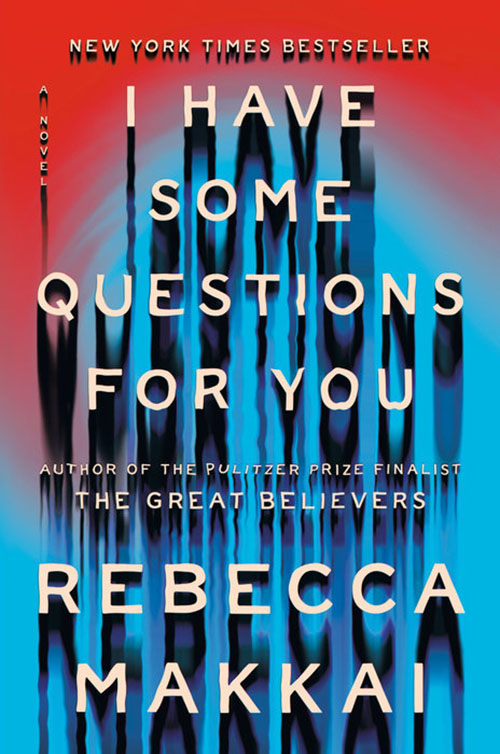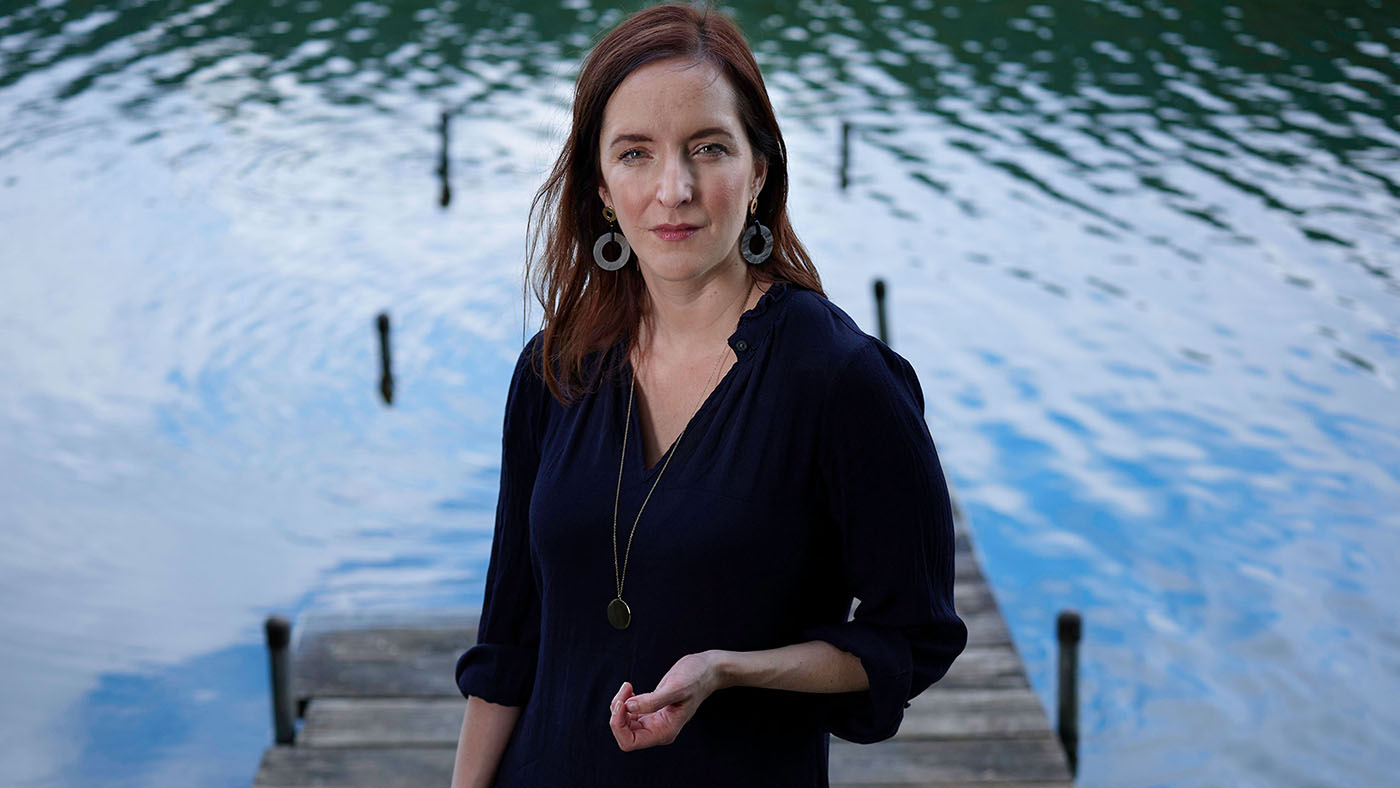Do we really know what we think we know? Whether the truth about life in the Middle East or why and how women are brutally murdered, there’s always more to the story, as Deborah Williams finds in Rebecca Makkai’s new novel.
I Have Some Questions for You, a novel by Rebecca Makkai
Penguin Random House 2023
ISBN 9780593490143
Deborah Williams
Everyone knows what happened to Thalia Keith, the high school student whose murder, in the spring of her senior year, is at the center of I Have Some Questions for You, Rebecca Makkai’s new novel. Everyone knows that the athletic trainer at the Granby School killed her and left her body floating in the school’s swimming pool. Everyone knows that Thalia was a “good girl.” Everyone knows everything.
But as is so often the case with what “everyone” knows … they’re wrong. Makkai’s novel explores the murky seams that run between what we’re sure we know, what we’re sure we remember, and what happens as those certainties start to come apart.

Thalia’s former roommate, Bodie Kane, is the novel’s narrator. Now a film professor and co-host of a successful podcast called Starlet Fever, Bodie has been invited to Granby to teach a two-week podcasting class. She tells herself she’s taking the gig because she needs the money and wants to be closer to the man with whom she’s having a desultory affair — but she also has questions about Thalia’s death, in part prompted by what she’s read on true-crime websites. When one of her students decides to focus her podcast on the investigation of Thalia’s death, which the student is convinced was flawed from the beginning, Bodie is pleased — and a little afraid about what the student might find.
As the students look for evidence that might lead to a re-opening of the investigation, Makkai draws our attention not only to society’s fascination with “true crime,” but also to the fact that true crime often revolves around the violent death of a woman. Too often, the specifics of a terrible crime collapse into generalized cultural memory: the crime is about “the one kept in the basement, the one who got in a cab, who went to a frat party, where he used a stick, where he used a hammer.”
“Everyone” knows about the deaths of these women — except, of course, that in reality we don’t know.
So too with Thalia. And as the students dig further into what happened on the night of Thalia’s murder, Bodie must examine her own memories and those of her friends in order to grapple with what really happened.
The novel threads Bodie’s childhood memories — a trauma that resulted in her being raised by foster parents, her unhappiness at Granby — with her adult reality: two children, a marriage on the verge of divorce, a disappointing love affair. As with The Great Believers, Makkai’s celebrated 2018 novel about the AIDS crisis and its aftermath, this novel explores the nature of memory and the stories we tell ourselves in order to survive.
Given that the novel is set on the campus of a (fictional) boarding school in the midst of a New Hampshire winter, it may seem surprising that, as I read it, I was reminded of how the Middle East is perceived by people in the US: everyone knows that women in the region are repressed because look how swathed they are; everyone knows that all the foreign workers are basically enslaved; everyone knows that if you’re caught stealing, they’ll cut off your hand. Everyone knows these things because they saw that one show or read that one article or listened to a podcast or maybe had a friend who went there that one time and saw a veiled lady. Saudi Arabia, the United Arab Emirates, Kuwait, Qatar — they’re all the same.
Such comments, as with those made about dead women in true crime podcasts, display a kind of prurient horror that is untethered to accountability: apparently, you can say anything you want about the Gulf, or about the circumstances of a woman’s murder.
Makkai’s novel doesn’t make this connection with the Gulf, but it nonetheless offers a powerful illustration of the ways in which the stories we tell ourselves — publicly or privately — shape our realities without our realizing it.
The novel demonstrates how our internal narratives about race, class, status, and gender shape perception: we see what we want to see and are reluctant (at best) to re-examine our perceptions. Yet the difference in attitude between Bodie’s students on the one hand, and, on the other, Bodie and her friends when they were the same age, shows us that change might be possible. For example, the man convicted of Thalia’s murder is Black, whereas almost everyone else involved in investigating the case is white, a fact that Bodie and her friends seemed willing to overlook. Bodie’s students, however, are sure that racism played a significant role in the investigation and are equally convinced that they can overturn his conviction.
As Bodie’s students—and her long-ago friends—try to uncover what really happened on the night of Thalia’s death, Bodie is also dealing with a “me too” accusation about her soon-to-be-ex-husband Jerome, drawing our attention to yet another way in which stories spread. A woman has made a performance piece that centers on what she says are Jerome’s unwanted attentions. Is she telling the truth? A truth? Part of the truth? When Bodie throws caution to the wind and takes to Twitter to defend Jerome, she finds herself suddenly part of the story: “everyone” suddenly knows that she must be complicit in whatever it is that Jerome did. Makkai’s focus on the tangled online world, in which stories circulate fast and gain traction quickly, gives this thriller a particularly trenchant bite.
There’s another death in the novel, albeit one that is not a murder, and Bodie’s thoughts about this loss highlight the reality underneath the noise of true crime. “Who knows if you even remember her,” Bodie thinks. “Maybe you remember her as a girl too prickly to close in on. Maybe she was forgettable background noise … In any case: she meant the world to me.”
The novel offers us meditations on grief as well as incisive cultural commentary—all wrapped in the juicy package of a campus thriller. And like all thrillers, there are any number of surprises in I Have Some Questions for You, each of which emerges organically from the action. Be warned, however: there is one final knife twist, and it hurts, because the truth it reveals is not a truth we want to know.




